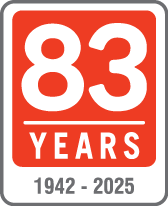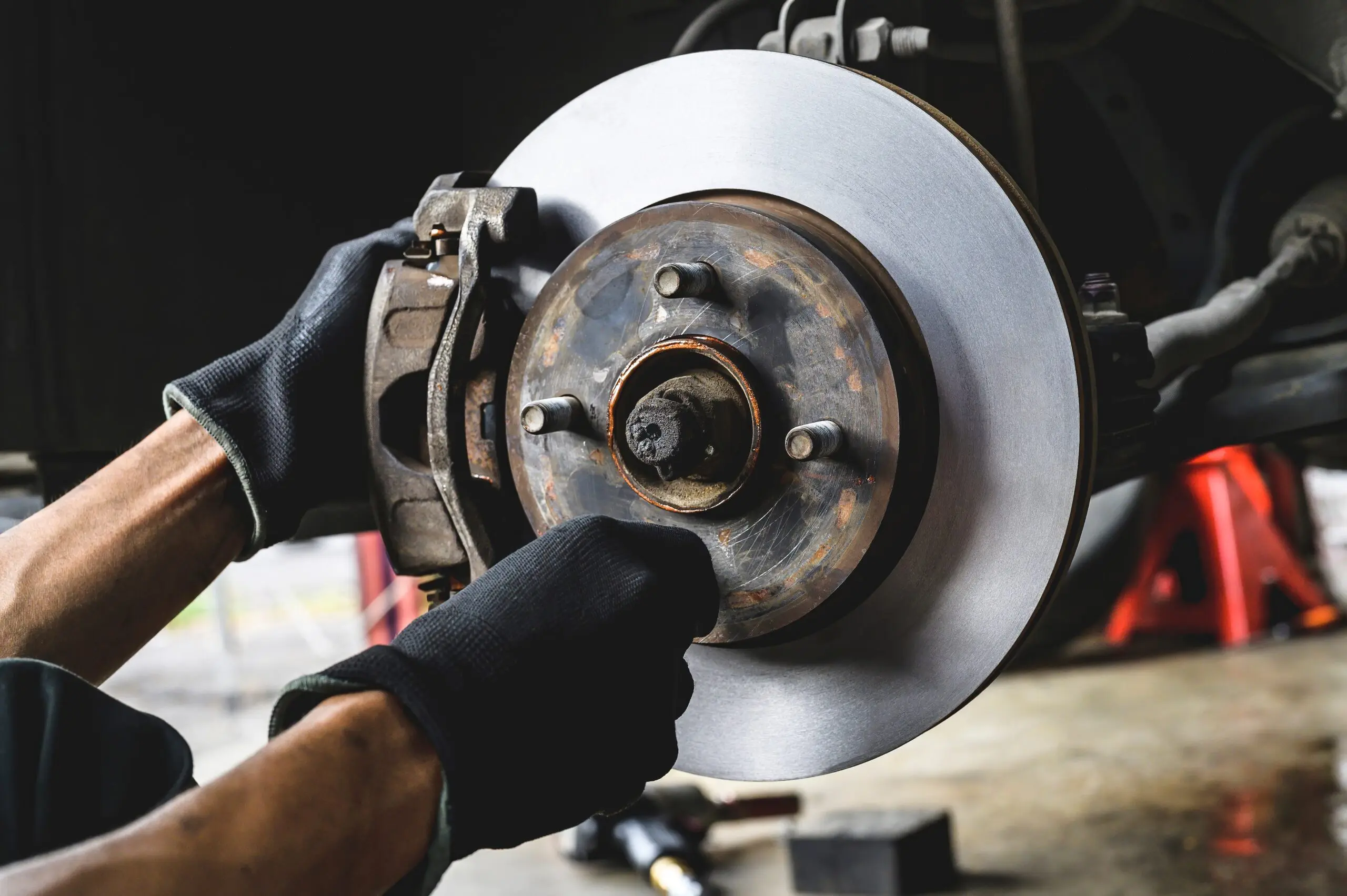Top 5 Signs You Need to Replace Your Brakes
Your vehicle’s brakes are one of the most important safety systems you rely on every time you drive. Healthy brakes ensure you can stop quickly, avoid collisions, and stay in control behind the wheel. But like any other part of your car, brakes wear out over time, and ignoring early warning signs can lead to costly repairs or dangerous situations on the road, making timely brake repairs critical when warning signs occur.
Here are the top five signs you need new brakes that should never be ignored.
1. Squealing or Screeching Noises
One of the first and most common signs you need new brakes or need to replace brake pads is a high-pitched squealing sound when you press the brake pedal.
What it Means
That squealing noise often comes from a wear indicator built into your brake pads. The small metal tab is designed to create noise when the pad material gets too thin, acting as your early warning system. While squealing doesn’t always mean immediate danger (it can also be caused by excess brake dust or moisture), it’s a strong indicator that your brake pads are nearing the end of their lifespan.
If ignored, the squealing can progress into grinding, which means the brake pad is completely worn down and the brake rotor is being damaged. This reduces your stopping power and makes the repair far more expensive. If you’re consistently hearing squealing or screeching, it’s best to schedule a brake inspection before the problem escalates.
2. Vibration or Pulsing When Braking
If you notice your steering wheel or brake pedal vibrating when you apply the brakes, that’s a red flag that something isn’t right.
What it Means
This shaking sensation usually points to warped rotors, which can happen from heat buildup during heavy braking or simply from wear over time. Uneven brake pad wear can also cause pulsing. Both issues prevent your brake pads from maintaining smooth, consistent contact with the rotor surface, which compromises stopping power and vehicle control.
In some cases, vibration can even spread throughout the car, making the ride feel unstable. If you’re feeling these sensations, especially at highway speeds, it’s important to get your brakes checked quickly to avoid further rotor damage and ensure safe braking performance.
3. Longer Stopping Distances
Does it feel like you have to press harder on the brake pedal or leave more room to stop than you used to? Your brakes may be warning you that it’s time for replacement.
What it Means
A longer stopping distance can signal several issues:
- Worn brake pads
- Low brake fluid
- Air trapped in the brake lines
In any of these cases, it is an urgent issue. Anytime your braking efficiency is reduced, you’ll need more time and distance to bring your car to a complete stop, which can be extremely dangerous, particularly when driving in heavy traffic.
Even if the issue feels minor at first, changes in stopping performance should never be ignored. Simply driving around town can be dangerous. What if a child accidentally runs into the road, or another car runs a stop sign? Stopping distance matters.
Getting your brakes inspected right away can prevent an unexpected failure and restore peace of mind behind the wheel.
4. Brake Warning Light Is On
Modern vehicles are equipped with advanced dashboard sensors that monitor key systems, including your brakes. If your brake warning light comes on, it’s not something you should brush off.
What it Means
When your brake indicator light is illuminated, it could indicate low brake fluid, worn brake pads, or even a problem with your vehicle’s anti-lock braking system (ABS). Unfortunately, many drivers continue to drive with the light on, assuming it’s not an urgent issue. However, because this warning could indicate any number of possible problems, it’s best to treat it as a signal that your brakes need immediate professional attention.
Even if your brakes seem to be working normally, ignoring this dashboard alert can allow a small issue to turn into a major safety hazard. Think of the brake warning light as your vehicle’s built-in safety reminder—it’s there for a reason.
5. Grinding Sounds or Metallic Noise
Perhaps the most alarming brake replacement sign is a loud grinding sound or metallic scraping when you hit the brakes.
What it Means
This noise almost always means your brake pads are fully worn out, leaving the metal backing plate to grind directly against the brake rotor. This drastically reduces your ability to stop safely and causes severe rotor damage that often requires a full replacement.
Driving in this condition is extremely dangerous and can lead to complete brake failure. If you hear grinding or metallic sounds, it’s crucial to bring your vehicle to Telle Tire immediately. The longer you drive on brakes with this level of wear, the more dangerous the problem becomes and the more costly the repairs become.
Common Questions About Brake Replacement
How often should I replace brake pads?
Most brake pads last between 30,000 and 70,000 miles, depending on driving habits and conditions. However, it’s always best to follow your vehicle manufacturer’s guidelines and have your brakes inspected regularly.
Can I drive with worn-out brakes?
Driving with worn brakes is dangerous and not recommended. It reduces your ability to stop safely and may lead to costly damage to rotors and other brake components.
How much does brake replacement cost?
The cost varies based on your vehicle type, the quality of replacement parts, and labor. On average, brake pad replacement ranges from $150 to $300 per axle, but repairs involving rotors or calipers can cost more. Regular inspections can help prevent these higher expenses.
Get Your Brakes Inspected at Telle Tire
If you’ve noticed any of these brake replacement signs, don’t wait until the issue worsens. At Telle Tire, our experienced technicians provide comprehensive brake inspections, repairs, and replacements to keep you safe on the road.
Take it to Telle and drive with confidence knowing your vehicle is in expert hands. Find a location near you and schedule your brake inspection today.

